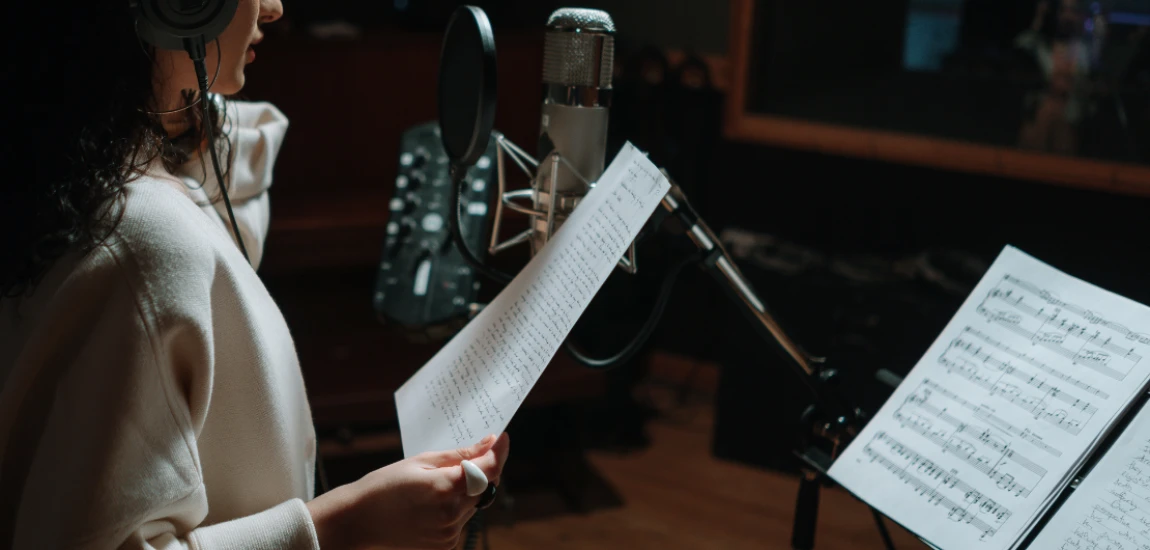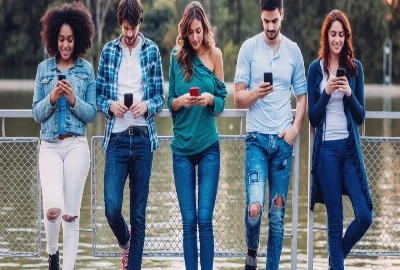The ‘IYKYK’ Era of Music: Why Lyrics Are Getting Cryptic—and Fans Are Loving It

If you’ve opened TikTok, scrolled through X, or streamed the latest Billboard chart-toppers, you’ve probably noticed a shift in how lyrics sound today. Gone are the straightforward, heart-on-sleeve anthems that dominated the radio in the 2000s and early 2010s. Instead, we’re entering what fans and critics alike are calling the “IYKYK era of music”—a phase where lyrics are more cryptic, coded, and layered than ever before. Instead of spelling everything out, artists now drop puzzle pieces, expecting their fans to connect the dots.
“IYKYK,” short for “if you know, you know,” is more than just an internet phrase—it’s a philosophy that musicians are increasingly weaving into their work. Songwriters are no longer chasing universality through broad metaphors alone. Instead, they’re creating hyper-specific references that resonate deeply with their most loyal audiences. Think subtle nods to shared trauma, local slang, or cultural callbacks so niche that only a certain group of listeners catch them.
This doesn’t mean music has lost its accessibility. Quite the opposite. The mystery adds allure. When fans feel like they’ve cracked a lyric’s hidden meaning, they feel more connected to both the song and the artist. Social media amplifies this, turning lyrical speculation into viral discourse. The result? Every new release becomes an event not just to listen to, but to decode.
The big question is: why now? Why are artists leaning into coded, cryptic writing more than ever in 2025, and why are fans responding so enthusiastically? To answer this, let’s dig into the cultural, technological, and emotional forces behind the IYKYK music era.
From Storytelling to Puzzle-Making: The Evolution of Lyrics
For decades, lyrics were expected to follow a familiar structure: tell a story, share a feeling, deliver a hook that sticks. Folk music told sweeping narratives. Rock leaned on rebellion and raw emotion. Pop centered on universality—love, heartbreak, ambition, and joy. Even rap, with its sharp wordplay, historically balanced accessibility with wit.
But as digital culture evolved, so did listeners’ attention spans and expectations. The streaming era fragmented the audience. Instead of everyone hearing the same song on the radio, fans curated hyper-specific playlists that reflected niche identities. Artists realized they no longer had to appeal to everyone at once—they could speak directly to their core fanbase. That intimacy changed the rules.
Enter cryptic lyrics. Instead of saying, “I miss you,” an artist might reference a brand of gum chewed during a breakup, or an obscure film only their most dedicated fans know they love. This transforms lyrics from universal storytelling into insider puzzles. Fans love it because solving them feels like uncovering a hidden diary entry.
We’ve seen glimpses of this before. Bands like Radiohead, rappers like MF DOOM, and even Taylor Swift with her infamous Easter eggs all dabbled in coded songwriting. But what makes 2025 different is scale. Today, cryptic songwriting is no longer niche—it’s mainstream. From chart-toppers to indie newcomers, artists across genres are intentionally crafting music that requires decoding.
The payoff is huge: cryptic lyrics extend a song’s shelf life. Fans don’t just stream once; they revisit, dissect, and argue online, driving engagement and boosting chart numbers. It’s a form of cultural gamification—turning songs into puzzles keeps listeners coming back for more.

Social Media and the Gamification of Decoding Lyrics
One of the biggest drivers of the IYKYK era is social media’s ability to amplify interpretation. Platforms like TikTok, Instagram, and Reddit have created entire ecosystems dedicated to lyrical analysis. A single vague line in a new release can generate thousands of videos, threads, and debates, each one offering a different theory about what the artist meant.
This participatory culture has gamified music. It’s no longer just about listening—it’s about engaging. Fans compete to be the first to “solve” a lyric, decode a metaphor, or spot an Easter egg referencing past albums. In this way, cryptic lyrics fuel virality. The more ambiguous a song, the more content it spawns online.
Take, for example, how Swifties dissect Taylor Swift’s every word or how K-pop fandoms analyze music videos frame by frame. The fun isn’t just in hearing the song—it’s in becoming part of the detective work. Social media rewards this behavior. A clever lyric interpretation can rack up millions of views, turning fans into micro-influencers.
For artists, cryptic writing is also a powerful marketing tool. Every line becomes potential for free promotion as fans spread theories far and wide. This creates a feedback loop: the more mysterious the lyrics, the bigger the buzz, the higher the streams.
But there’s another layer here: community. Fans bond through the act of decoding. They form inside jokes, shared languages, and collective identities around their interpretations. Music isn’t just sound anymore—it’s a social puzzle designed for digital discussion.

Why Fans Crave the Cryptic: Exclusivity and Emotional Depth
So why are cryptic lyrics resonating so deeply right now? One answer is exclusivity. In an era where everything feels mass-produced and algorithm-driven, being part of a niche interpretation feels special. Understanding an artist’s coded language makes fans feel like insiders, part of an exclusive club that “gets it.”
This exclusivity fosters loyalty. Fans who feel seen by a lyric are more likely to stick with an artist long-term. It’s a form of emotional branding. An obscure line that resonates personally can feel more powerful than a generic love song ever could.
Cryptic lyrics also invite deeper emotional engagement. By leaving space for interpretation, artists give listeners room to project their own experiences onto the music. A vague metaphor about “burning houses” might mean heartbreak to one listener, anxiety to another, or political unrest to someone else. That openness makes the song versatile, adaptable across cultures and contexts.
Finally, cryptic lyrics thrive in a world where identity is often expressed online. Fans love curating their personalities through what they post, and a mysterious lyric offers the perfect caption material. It signals depth, wit, and belonging to a cultural moment—all key drivers in digital self-expression.
In short, cryptic lyrics succeed because they feel both exclusive and universal. They’re personal puzzles for fans to solve but open-ended enough to resonate widely. That balance explains why the IYKYK era has become the dominant sound of 2025.

Actionable Takeaways: What Artists and Fans Can Learn
For artists, the rise of the IYKYK era offers valuable lessons. Writing cryptic lyrics doesn’t mean abandoning clarity—it means embracing layers. A song can have a catchy surface meaning for casual listeners while embedding deeper codes for superfans. This dual approach maximizes reach while cultivating loyalty.
Artists can also strategically use cryptic writing as a marketing tool. Dropping Easter eggs across albums, hinting at personal stories without confirming them, or creating references that tie into broader fan theories can keep audiences invested between releases. But it’s important not to overdo it—mystery works best when paired with genuine emotion, not forced ambiguity.
For fans, the IYKYK era is an invitation to engage more actively. Instead of passively consuming music, listeners can participate, analyze, and contribute to a collective cultural moment. This not only strengthens fan communities but also gives fans a greater sense of ownership over the music they love.
On a broader level, the trend also encourages media literacy. Learning to decode lyrics trains audiences to think critically, question interpretations, and appreciate layered storytelling. In a world flooded with content, these skills are more valuable than ever.





